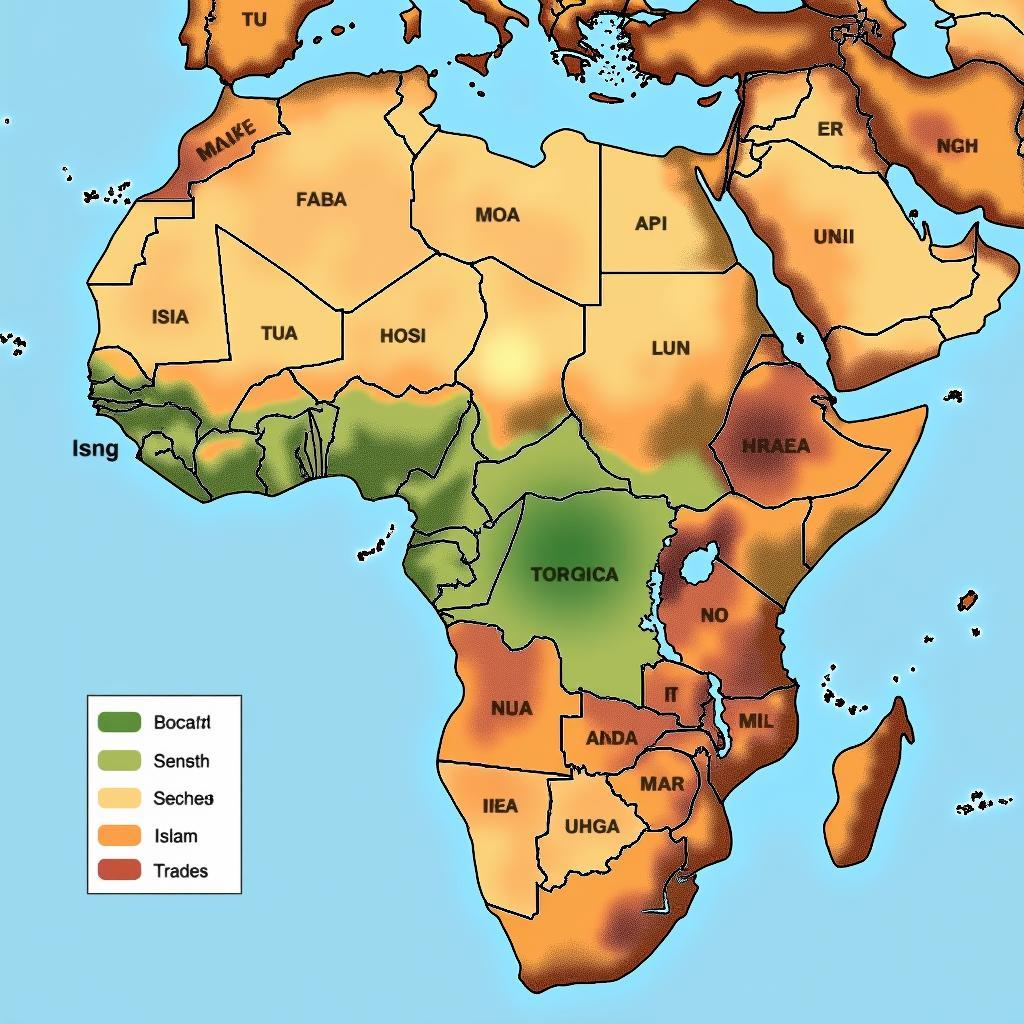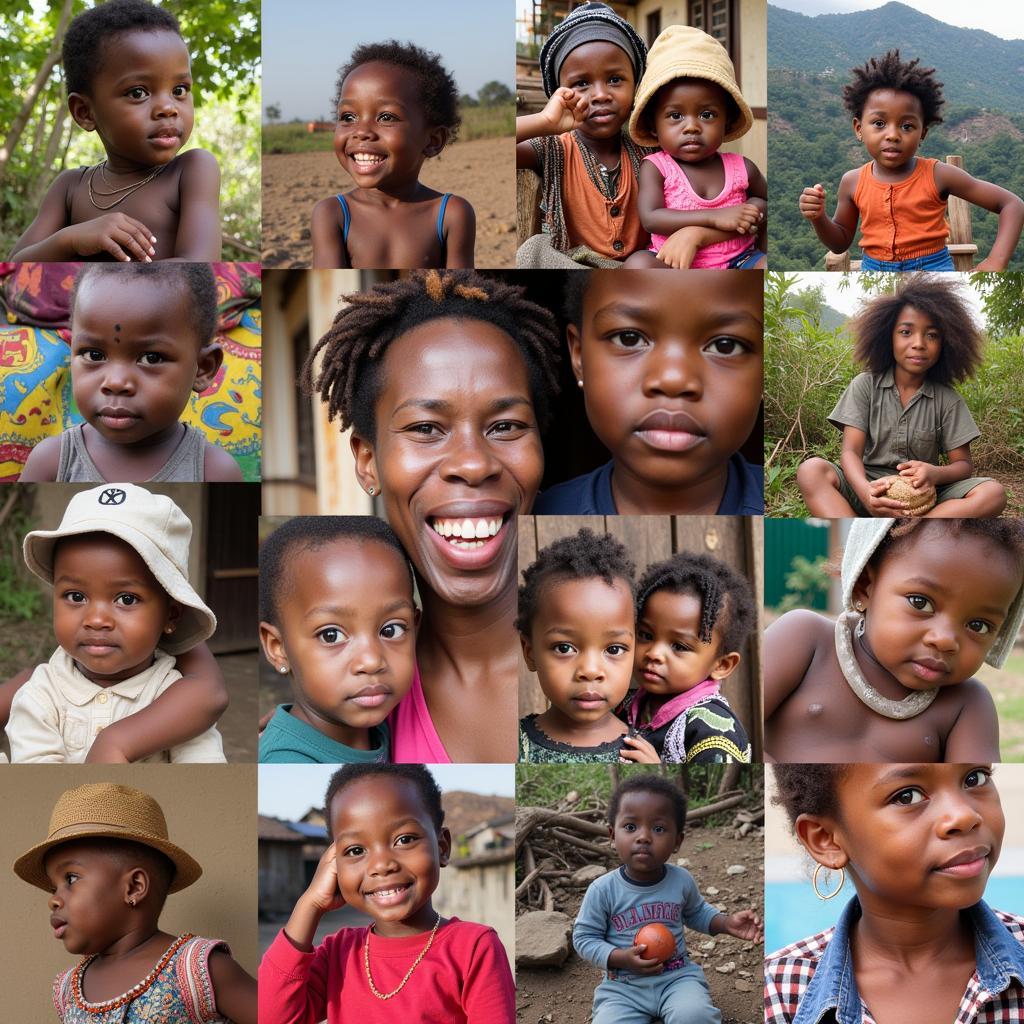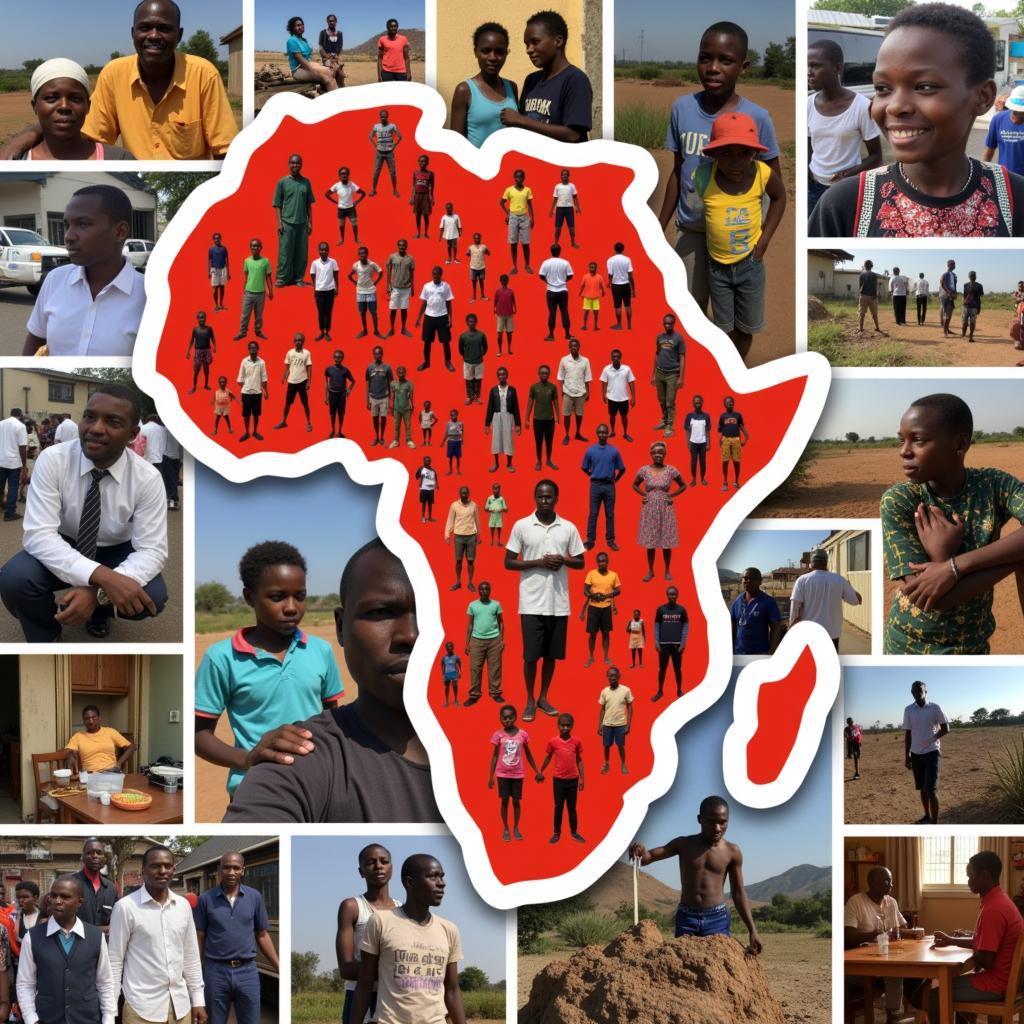African Countries and Their Capital Cities
Africa, a continent of vibrant cultures, rich history, and breathtaking landscapes, is comprised of 54 recognized sovereign states, each with its own unique capital city. Knowing these African Countries And Their Capital Cities is not just a geography lesson; it’s a gateway to understanding the continent’s diverse political, economic, and social tapestry. 10 african countries and their capital
Exploring the Capitals of North Africa
North Africa, bordering the Mediterranean Sea, boasts a blend of Arab, Berber, and African influences. Countries like Morocco, with its bustling capital Rabat, offer a glimpse into ancient imperial cities, while Tunisia’s Tunis stands as a testament to the region’s strategic importance throughout history. Algeria’s Algiers, a sprawling metropolis on the Mediterranean coast, showcases the region’s French colonial past. Egypt, home to the ancient wonders and its capital, Cairo, pulsates with the energy of a modern megacity while retaining its historical significance. Libya, with its capital Tripoli, rounds out the North African landscape, adding another layer of complexity to the region’s rich cultural mosaic.
West Africa: A Hub of Culture and Commerce
West Africa, known for its vibrant music scene, colorful textiles, and rich history of kingdoms and empires, presents a diverse range of capital cities. From the coastal city of Accra, Ghana, to the inland capital of Abuja, Nigeria, the region showcases a blend of traditional and modern influences. Senegal’s Dakar, a bustling port city, serves as a major economic and cultural hub. Other notable capitals include Bamako, Mali; Abidjan, Côte d’Ivoire; and Ouagadougou, Burkina Faso, each reflecting the unique character of its nation. Learning about these African countries and their capital cities opens a window into the region’s complex social and political landscape.
Unveiling the Capitals of East Africa
East Africa, a region of stunning natural beauty, from the Serengeti plains to the snow-capped peaks of Mount Kilimanjaro, is home to a diverse array of capital cities. Kenya’s Nairobi, a vibrant metropolis, serves as a major economic hub for the region. Tanzania’s Dodoma, a planned city, represents the country’s commitment to development. Uganda’s Kampala, a bustling city nestled amidst hills, offers a glimpse into the country’s rich cultural heritage. Other important East African capitals include Kigali, Rwanda; Addis Ababa, Ethiopia; and Djibouti City, Djibouti, each contributing to the region’s unique identity. Knowing about these African countries and their capital cities is crucial to understanding the region’s dynamic political and economic landscape.
Central Africa: Exploring the Heart of the Continent
Central Africa, often referred to as the heart of the continent, is characterized by its dense rainforests, diverse wildlife, and complex political history. The Democratic Republic of Congo, with its capital Kinshasa, is the largest country in the region. Cameroon’s Yaoundé and Gabon’s Libreville are other important capitals, each reflecting the region’s unique blend of African and European influences. Knowing these African countries and their capital cities helps in understanding the region’s ongoing challenges and opportunities.
Southern Africa: A Tapestry of Cultures and Landscapes
Southern Africa, a region of stunning natural beauty, from the deserts of Namibia to the coastal landscapes of South Africa, showcases a variety of capital cities. South Africa, with its three capitals (Pretoria – executive, Cape Town – legislative, and Bloemfontein – judicial), stands as a testament to the country’s complex political history. Other key capitals include Windhoek, Namibia; Gaborone, Botswana; and Maputo, Mozambique. Understanding these African countries and their capital cities is crucial for navigating the region’s political and economic landscape. african countries in geographical order
Which African country is Abuja the capital of?
Abuja is the capital of Nigeria. abuja is the capital of which african country
Conclusion
Understanding African countries and their capital cities is a crucial step in appreciating the continent’s rich diversity and complex history. From the bustling metropolises to the smaller, culturally significant capitals, each city tells a story of its nation’s past, present, and future. This journey through African capitals offers a glimpse into the continent’s vibrant tapestry, inviting further exploration and understanding.
FAQ
- How many countries are in Africa? There are 54 recognized sovereign countries in Africa.
- What is the largest country in Africa by area? Algeria is the largest country in Africa by area.
- What is the most populous country in Africa? Nigeria is the most populous country in Africa.
- What is the smallest country in Africa? Seychelles is the smallest country in Africa.
- What are the official languages of the African Union? The official languages of the African Union are Arabic, English, French, Portuguese, Spanish, Swahili, and any other African language.
- Which African country has three capital cities? South Africa has three capital cities.
- What is the oldest capital city in Africa? Some historians consider Luxor, Egypt, as the oldest capital city in Africa.
Other Questions You Might Have
- What are the different regions of Africa?
- What are the major economic activities in different African countries?
- What are some of the challenges facing African countries today? african continent map pdf
For further insights, explore related articles on African engineering and other topics on our website. african engineering
Need help? Contact us at +255768904061 or kaka.mag@gmail.com. Visit us at Mbarali DC Mawindi, Kangaga, Tanzania. We offer 24/7 customer service.



